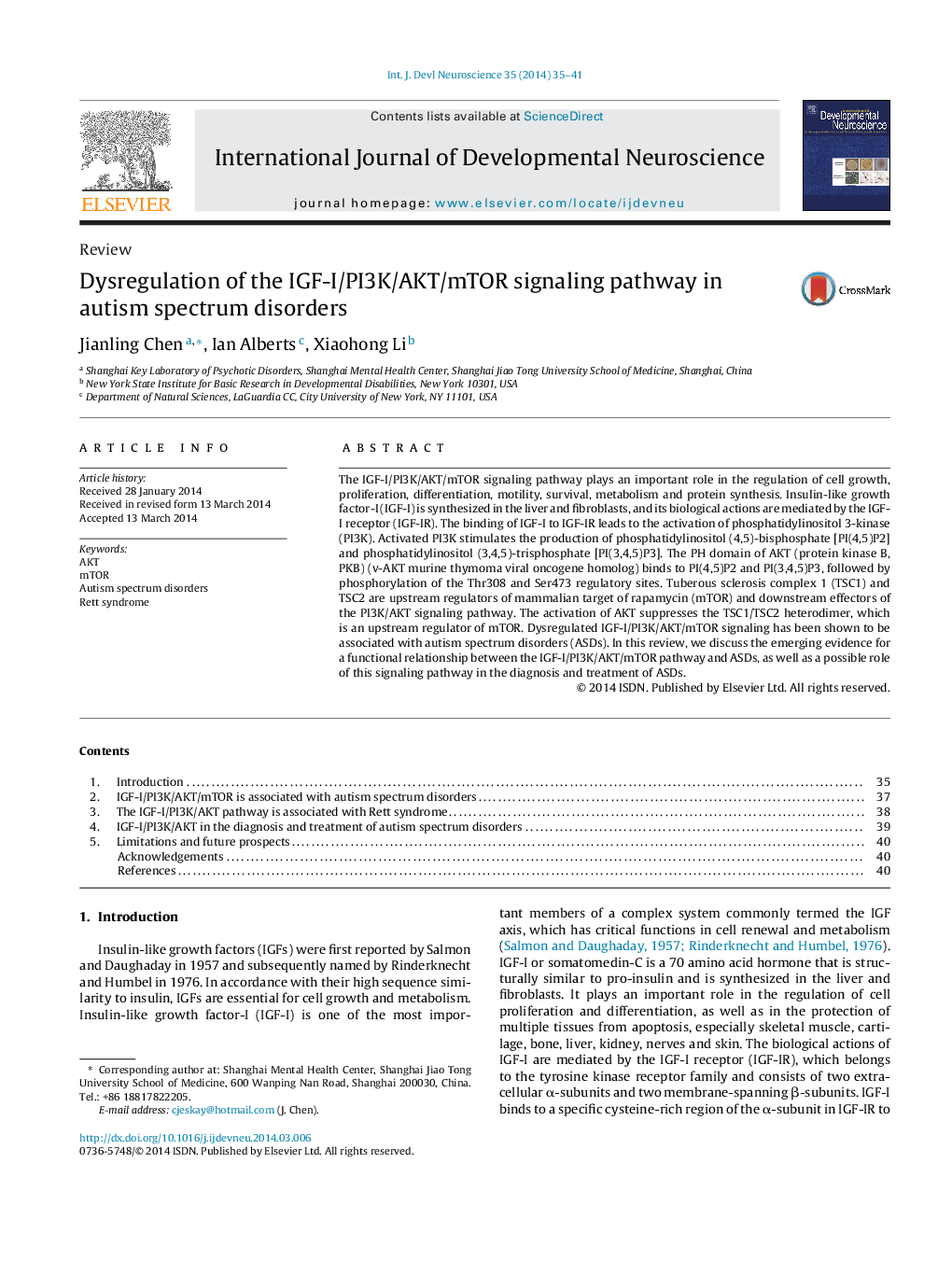| Article ID | Journal | Published Year | Pages | File Type |
|---|---|---|---|---|
| 2785987 | International Journal of Developmental Neuroscience | 2014 | 7 Pages |
•The IGF-I/PI3K/AKT/mTOR signaling pathway plays an important role in the regulation of diverse cell functions.•Dysregulated IGF-I/PI3K/AKT/mTOR signaling has been shown to be associated with autism spectrum disorders.•IGF-I/PI3K/AKT/mTOR pathway has potency in the diagnosis and treatment of autism spectrum disorders.
The IGF-I/PI3K/AKT/mTOR signaling pathway plays an important role in the regulation of cell growth, proliferation, differentiation, motility, survival, metabolism and protein synthesis. Insulin-like growth factor-I (IGF-I) is synthesized in the liver and fibroblasts, and its biological actions are mediated by the IGF-I receptor (IGF-IR). The binding of IGF-I to IGF-IR leads to the activation of phosphatidylinositol 3-kinase (PI3K). Activated PI3K stimulates the production of phosphatidylinositol (4,5)-bisphosphate [PI(4,5)P2] and phosphatidylinositol (3,4,5)-trisphosphate [PI(3,4,5)P3]. The PH domain of AKT (protein kinase B, PKB) (v-AKT murine thymoma viral oncogene homolog) binds to PI(4,5)P2 and PI(3,4,5)P3, followed by phosphorylation of the Thr308 and Ser473 regulatory sites. Tuberous sclerosis complex 1 (TSC1) and TSC2 are upstream regulators of mammalian target of rapamycin (mTOR) and downstream effectors of the PI3K/AKT signaling pathway. The activation of AKT suppresses the TSC1/TSC2 heterodimer, which is an upstream regulator of mTOR. Dysregulated IGF-I/PI3K/AKT/mTOR signaling has been shown to be associated with autism spectrum disorders (ASDs). In this review, we discuss the emerging evidence for a functional relationship between the IGF-I/PI3K/AKT/mTOR pathway and ASDs, as well as a possible role of this signaling pathway in the diagnosis and treatment of ASDs.
